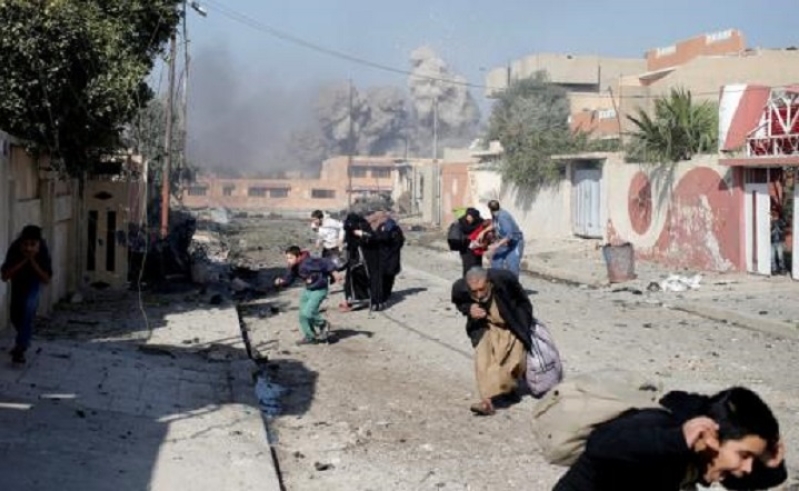
As the battle against ISIS continues in the Iraqi city of Mosul, hospitals in the area are overwhelmed with the wounded that are being brought in.
Most of the civilians in the area, having been discouraged by the government from fleeing to overcrowded camps, are caught in the intensifying fight to retake Mosul.
Wounded residents are brought to hospitals on a daily basis, making it difficult for the hospitals to cope with the volume of patients needing treatment, according to local media outlet Arab 24.
The fighting has also damaged the city such that water and electricity supply have been cut off, and food has become scarce. On top of these, medicines are becoming hard to get by.
Some people move from one neighborhood to another in search of food and safety, according to The Washington Post.
An anonymous source said people are dying for lack of medicine in the hospitals. This shortage of medicines was caused by ISIS fighters who were “monopolizing” the medical supplies.
"They died mainly due to a lack of medicine and health supplies in the city’s hospitals," the source told Anadolu Agency. "Local hospitals are packed with Daesh militants who were injured while fighting Iraqi forces. The terrorists are monopolizing our limited medical supplies, which they fear will run out as fierce battles continue in the city.”
Erbil province governor Nawzad Hadi, who visited West Erbil Hospital to see its conditions, instructed the Ministry of Health to provide more support to medical facilities to enable them to cope with the demand.
Meanwhile, health workers from Iraq and other countries have set up a stopgap trauma center. Here, patients—mostly residents who were wounded by mortar shells or shot by ISIS—are given temporary treatment to make their condition stable enough so they can be transported to a better hospital about two hours away, The Washington Post said in another report.
More than a third of the wounded civilians seeking safer ground are in need of trauma care. Aside from those affected by the offensive, other patients with common conditions like diabetes and heart problems also suffer from lack of medicines.
Additionally, doctors and nurses are in short supply.
Ahmed Doberdani, a senior health official for Nineveh province, said the scale of the offensive against ISIS has resulted in “big and surprising” injuries among the residents.
“This is a huge military operation, and the scale of the injuries to civilians and military personnel — especially civilians — has been very big and surprising,” Doberdani said.
According to a report from Human Rights Watch, ISIS fighters have “indiscriminately attacked civilian areas in eastern Mosul with mortar rounds and explosives, and deliberately shot at fleeing residents.”
ISIS justified such attacks by labeling the residents “unbelievers,” saying they are “valid targets.” Civilians who are trapped in Mosul fear that the terror group would use them as human shields.
“If ISIS really cared about the people trapped in its so-called caliphate it would let them flee to safety,” Lama Fakih, deputy Middle East director at Human Rights Watch, said. “Instead, it is indiscriminately or deliberately killing and wounding people for refusing to be human shields.”
Jassim al-Attiyah, Iraq’s deputy minister for migration and displacement, said an estimated 150,000 people have been displaced in Mosul, with hundreds of thousands more trapped in their homes.
Attiyah said the situation could still worsen as Iraqi troops continue to advance toward ISIS-held areas.
“There is no water, no electricity, and a lot of the doctors have left,” he said.






